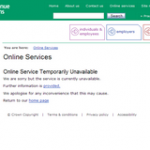Just to note that e-gov minister (?) Tom Watson, responding to comments on his ‘tell me what to do’ blog post, says he has ‘already got moving on the single spot for consultations’. It’s a start, but it’s far from the solution. Indeed, not so long ago, we did have a single (Cabinet Office?) website listing all open consultation exercises. It disappeared. The address www.consultations.gov.uk now redirects to a page at BERR.
The more important aspect to Sheila Thomson’s proposal was the ugly techie bit. Her four-stage plan started with a single list, moved to a single notification channel, then to a standard layout, then to a standard XML schema. The first two are dead easy, we could do it in WordPress in minutes; the second two are much, much more difficult – if not impossible. People get very precious about their writing.
Of all the issues in government web activity, consultation is the one I’m most concerned about. It’s taking us a helluva long time to find an acceptable means of consulting, online or offline; and frankly, I’m not sure there’s an appetite for it among the general population. Various people are trying various things at the moment; but until those deliver (or not), we need to concentrate on re-engaging the population, and making them actually care enough to get involved.
 Prepare yourself for the next ‘IT incompetence’ story:
Prepare yourself for the next ‘IT incompetence’ story: